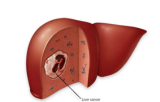
Gastrointestinal cancers
Gastrointestinal cancers are a heterogeneous group of diseases that affect the gastrointestinal tract. They can affect various organs, including the oesophagus, stomach, pancreas, liver, gallbladder, small intestine, colon and rectum. Gastrointestinal cancers are caused by a combination of modifiable and non-modifiable risk factors, such as age, sex, diet, smoking, alcohol consumption, obesity, family history and chronic infections.
Each variant of gastrointestinal cancer has unique characteristics, often related to the specific location in the digestive tract.
The molecular biology of gastrointestinal cancers is diverse, involving a range of genetic mutations and epigenetic alterations. These genetic changes can lead to uncontrolled cell proliferation, resistance to apoptosis, and the formation of malignant tumors. Environmental and genetic factors interact in a complex way, contributing to the development of these cancers.
Gastrointestinal cancers present particular challenges because of their heterogeneity and ability to escape the body's normal control mechanisms. Scientific research is focused on gaining an in-depth understanding of the molecular biology underlying these cancers, identifying specific markers and crucial signaling pathways. Research continues to explore new avenues to better understand the biology of gastrointestinal cancers, paving the way for significant breakthroughs in future prevention and treatment.
Select the cells below to find the most commonly used cell lines complete for each specified cell type.




